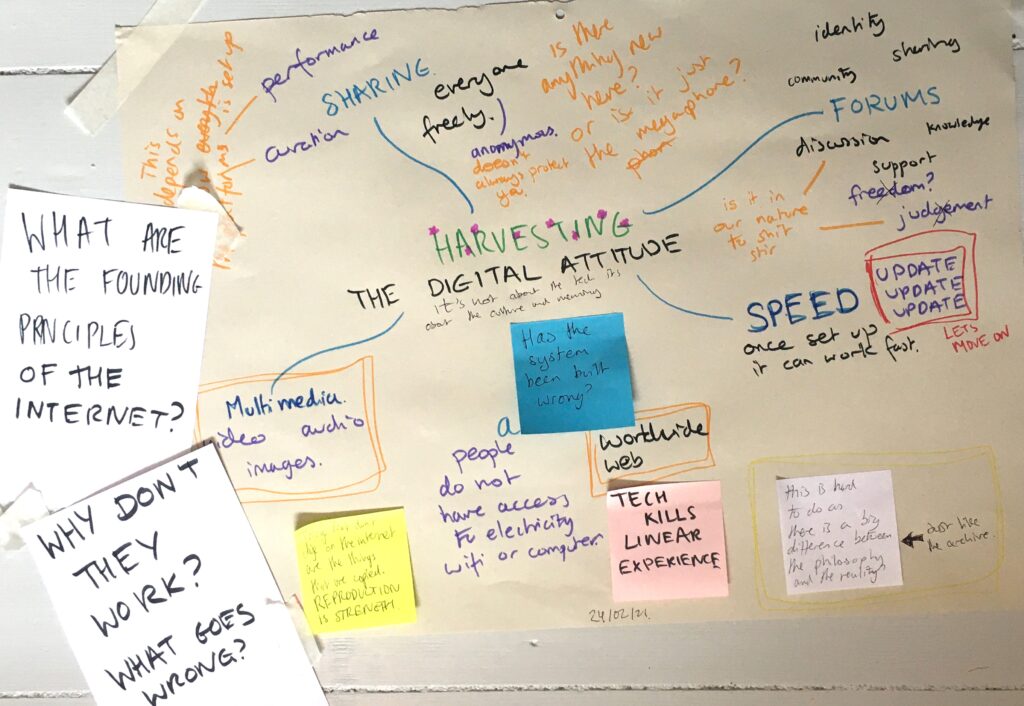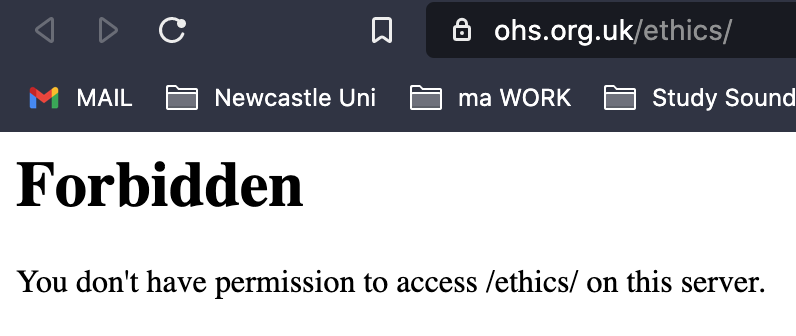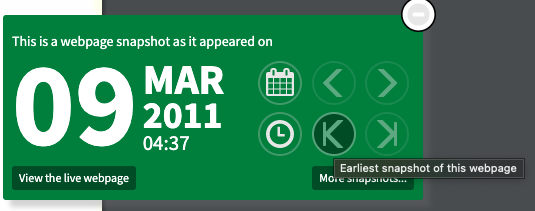| Tech scandels | Tech | OHT | |
|---|---|---|---|
| 1981 | TAPE system | ||
| 1983 | CD released in Europe and USA | ||
| 1991 | Project Jukebox (funded by Apple Library of Tomorrow Grant) | ||
| 1992 | Mini Disc | ||
| 1993 | Copyright Duration Directive (EU) | ||
| 1994 | Web Mail is used in CERN | Steven Spielbarg starts the SHOAH institute | |
| 1995 | |||
| 1996 | WIPO Copyright Treaty | The Internet Archive | |
| 1997 | Wi-Fi | ||
| 1998 | Digital Millennium Copyright Act (USA) [also had a big affect on the right repair] | Interclipper demostration at OHA conference | |
| 1999 | First SD card | ||
| 2000 | The Dot-com Bubble bursts | VOAHA | |
| 2001 | First iPod and iTunes ; Creative commons is founded ; The Wayback Machine goes public. | ||
| 2002 | Zoom H2 Handy Recorder | ||
| 2003 | |||
| 2004 | Vimeo ; Facebook | Civil Rights Movement in Kentucky Oral History Project | |
| 2005 | Youtube | ||
| 2006 | SHOAH collection moves to the University of Southern California | ||
| 2007 | iPhone ; SoundCloud | Project Jukebox collabs with Testimony Software ; Montreal Life Stories kicks off | |
| 2008 | FRISCH : First version of OHMS | ||
| 2009 | |||
| 2010 | France enacts the right to be forgotten | Crash of VOAHA | |
| 2011 | Zoom | VOAHA II ; OHMS becomes open source ; Stories Matter is released | |
| 2012 | |||
| 2013 | Edward Snowden | ||
| 2014 | European Court of Justice legally solidfies the “right to be forgotten” is a human right ; First NFT | ||
| 2015 | Australian Generations oral history project ends | ||
| 2016 | Cambridge Analytica | Tiktok | |
| 2017 | Obama Deep Fake | UOSH starts | |
| 2018 | GDPR is implimented | ||
| 2019 | |||
| 2020 | Covid-19 Pandemic | ||
| 2021 | Chat-GPT | ||
| 2022 | UOSH ends | ||
| 2023 | British Library Hack | ||
| 2024 | Europran Union adopts some right to repair rules. | OHA conference on Oral History and AI |
Tag Archives: Internet
OHD_LST_0244 Links to archives and online fun
Podcasts
BBC Radio 4 – A History of Ghosts Ep. Did You Hear That?
BBC Radio 4 – The Patch
BBC Radio 4 – Under the Cloud
BBC Sounds – Elon Musk: The Evening Rocket, Ep. 4 – Baby X
Puskin – The Last Archive
Reply All – #168 Happiness Calculator vs. Alex Goldman
Reply All – #171 Account Suspended
This American Life – The Room of Requirement
Documentaries
Dirty Streaming: The Internet’s Big Secret
The Great Hack
The Social Dilemma
Shirkers
Archives
The Citizens Archive of Pakistan
Creative Memory of the Syrian Revolution
Online Things
The Affective Computing Research Group
Archive It built by the internet archive
CoHERE 4 – Futurescaping and the Deletion Bureau
The John Nicholas Brown Center for Public Humanities and Cultural Heritage
National Digital Stewardship Alliance
Save our Sounds by The British Library
Talks
Impossible Archives, Infinite Collections by Carles Guerra
Shklovski, I. (2021) AI as relational Infrastructure during the Not Equal summer webinars
OHD_MDM_0021 The Digital Attitude (Harvesting) mind map
OHD_SSH_0147 Important dead link
OHD_SSH_0141 Snapshot of webpage
OHD_BLG_0039 It’s not my problem
There is a problem within the National Trust’s storage system (SharePoint) that is sadly a consequence of democratisation. SharePoint is a complete mess and no one really knows what is going on or who to ask about what is going on. And although this has a lot to do with the design of SharePoint and the lack of transparency surrounding the structure of folders and such, there is another reason there is so much chaos in the folders and that is control. You see before this chaos took hold it was the collection staff who would have been in charge of the archival and collection material, while others might handle files concerning business. Information would have been kept on people’s shelves in their offices, and so to access this information you would have to go through a human. This might in some cases be really annoying because the person who could grant access wasn’t feeling up for it. But then the internet came along with the main intention to make information free and accessible – a more democratic system. Like everyone else the National Trust also decided to remove its strict system of gatekeepers and adopt the attitude of the internet. And this is where an unforeseen consequence arises because while before one person was responsible for a file, now everyone is responsible for all the files, there are no parameters. And because everyone is in charge of looking after everything it is really easy for the individual to simply hope that the next person will sort out that file. Also because looking after files is maintenance and people do not like doing maintenance. Now do not get me wrong I agree that we should have better access to archives and no has the right to deny someone access, but in a world where everyone is responsible, no one is responsible and the National Trust’s SharePoint proves this.


